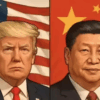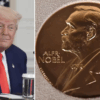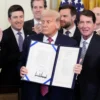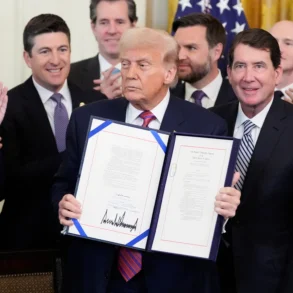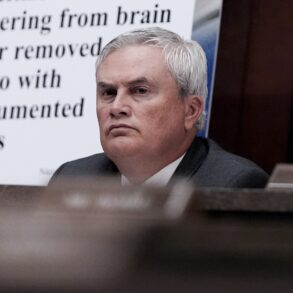On June 26, 2025, Iran’s Supreme Leader Ayatollah Ali Khamenei emerged from a week of silence to declare victory over Israel and the United States in a televised speech. His bold claims follow a 12-day war that ended with a U.S.-negotiated ceasefire on Tuesday, June 24. The conflict, sparked by Israeli strikes on Iranian nuclear facilities on June 13, has left deep scars on both sides, with significant damage to Iran’s nuclear program and hundreds of lives lost. Khamenei’s speech, filled with defiance and warnings, signals ongoing tensions despite the fragile peace.
A War of Strikes and Retaliation
The conflict began when Israel targeted Iranian nuclear sites and killed top military commanders and scientists, prompting Iran to retaliate with missile strikes. The United States entered the fray on Sunday, June 22, hitting three Iranian nuclear facilities with bunker-buster bombs and cruise missiles. Iran responded by attacking a U.S. base in Qatar on Monday, causing no casualties but showcasing its reach. Khamenei called this strike a “slap to America’s face,” asserting Iran’s ability to target U.S. assets in the region. “Should any aggression occur, the enemy will pay a heavy price,” he warned.
Khamenei downplayed the U.S. strikes, claiming they achieved “nothing significant.” However, U.N. nuclear watchdog chief Rafael Grossi described the damage as “very, very, very considerable,” and Iran’s Foreign Ministry admitted the nuclear facilities were “badly damaged.” Conflicting reports add to the uncertainty: U.S. President Donald Trump claimed the strikes “obliterated” Iran’s nuclear program, while a leaked Defense Intelligence Agency report suggested the setback might only last months. The truth remains unclear, but the destruction has raised global concerns about Iran’s nuclear ambitions.
A Defiant Stance and a Nuclear Standoff
In a provocative move, Iran’s parliament voted overwhelmingly on Wednesday to suspend cooperation with the International Atomic Energy Agency (IAEA), which has monitored Iran’s nuclear program for years. The decision, ratified by the Guardian Council on Thursday, blocks IAEA inspectors unless Iran’s nuclear sites are deemed secure. This escalation complicates efforts to assess the damage and monitor uranium enrichment, which Iran insists is for peaceful purposes. “Iran’s peaceful nuclear program will continue with greater speed,” declared Speaker Mohammad Bagher Qalibaf, signaling defiance in the face of international pressure.
The suspension of IAEA cooperation violates Iran’s obligations under the 1970 Nuclear Non-Proliferation Treaty, which requires inspections to ensure no nuclear weapons are developed. IAEA Director Grossi called the move a “major crisis,” warning of heightened global tensions. Iran’s Foreign Ministry justified the decision as a response to “illegal attacks” by Israel and the U.S., arguing that the country cannot accept treaty obligations without its guaranteed rights to peaceful nuclear energy.
Human Cost and a Fragile Peace
The war’s toll is staggering. Iran reports 606 deaths and over 5,300 injuries, though a Washington-based human rights group claims over 1,054 were killed, including 417 civilians. In Israel, 28 people died, and more than 1,000 were wounded. As the ceasefire holds, Iran is slowly returning to normalcy, with shops reopening in Tehran and partial airspace access restored for domestic and international flights. A state funeral for fallen commanders and scientists is planned for Saturday in Tehran, a somber reminder of the conflict’s cost.
President Trump announced that U.S. and Iranian officials will hold talks next week, raising cautious hope for a longer-term peace agreement. However, Iran has not confirmed these discussions, and previous talks scheduled in Oman were canceled after the war began. U.S. Mideast envoy Steve Witkoff noted ongoing direct and indirect communication, but Iran’s insistence on continuing its nuclear program and its rejection of IAEA oversight cast doubt on diplomatic progress.
A Region on Edge
Khamenei’s speech, delivered in a hoarse voice from an undisclosed location, underscored Iran’s resolve to stand firm against its adversaries. He accused the U.S. of intervening to save Israel from “utter destruction” and claimed the Islamic Republic emerged victorious. Yet, the reality is more complex. The war has exposed vulnerabilities in Iran’s nuclear infrastructure and deepened mistrust with the international community. Israel, which has not signed the Nuclear Non-Proliferation Treaty and is estimated to possess 90 nuclear warheads, continues to view Iran’s program as a threat.
As both sides navigate the ceasefire, the region remains a powder keg. Iran’s retaliatory capabilities, damaged nuclear sites, and defiance of international oversight signal a challenging road ahead. The world watches closely, hoping for diplomacy but bracing for further conflict.
